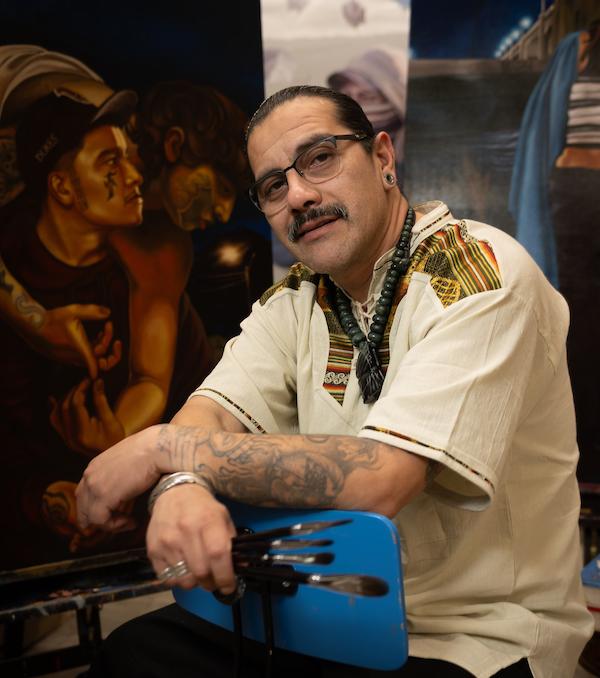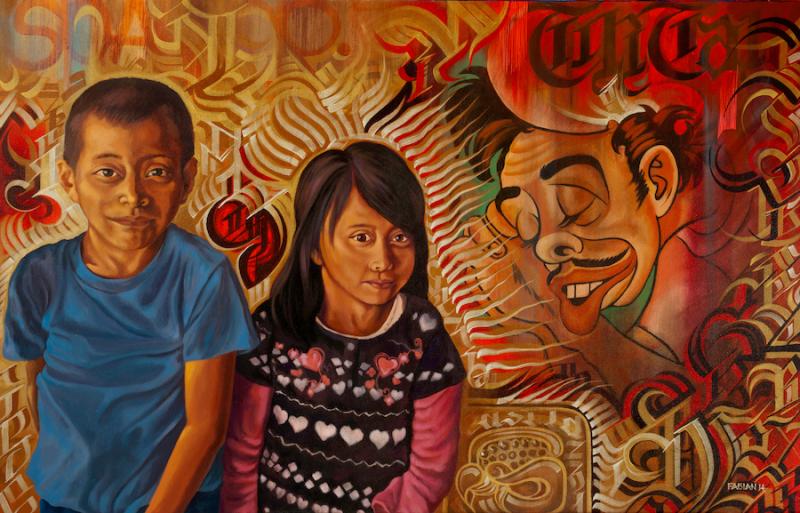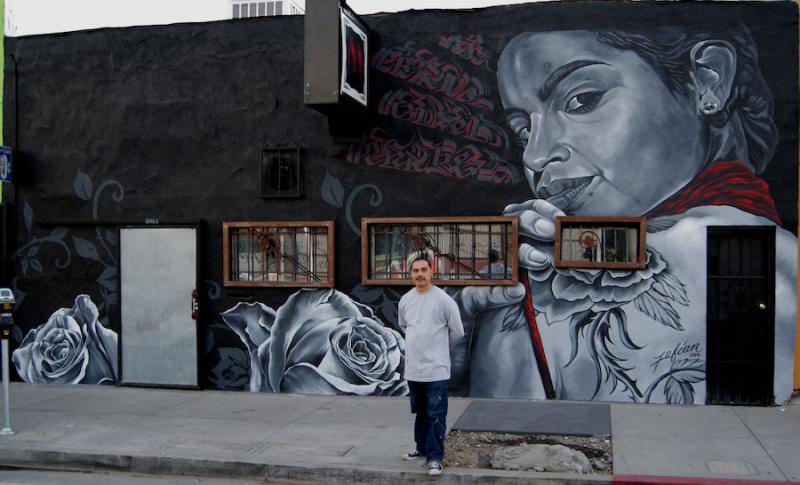Fabian Debora

Photo by Eddie Ruvalcaba
Bio
Fabian “Spade” Debora’s artistic cultural work breaks our hearts, softens us, and leads us to move beyond the ideas we have about gang members and formerly incarcerated individuals. It works on us in ways to which we are little accustomed. A former incarcerated gang member, Debora’s artwork interprets a broad view of life experiences, which is aptly symbolized by his signature wide-rimmed shades. Through which, he sees tenderness and inclusivity, where low-riders transport love to places where love has not yet arrived.
In his birthplace of El Paso, Texas, and childhood community of East Los Angeles’ Boyle Heights, Debora was surrounded by the Chicano art movement’s groundbreaking cultural heritage work, which became visibly impactful in his muralism. This public art and its reflection on Chicano collective history, cultural identity, and social justice provided significant meaning in his Mexican American culture in Los Angeles. As a unique form of American art, it infused Debora’s imagination with hope during his oppressed youth. The Chicano art movement also supplied him with mural mentors whose influence was palpable in his work and in his desire to inform the broader community of the value of those who have been in gangs or incarceration.
As a first-generation Mexican American child with an incarcerated father, Debora was forced to flee to the street gang of his neighborhood for survival after being expelled from the Catholic parish school following an incident of violence. Eventually, Debora’s gang lifestyle and graffiti art resulted in adolescent detention. Through his years of subsequent incarceration, struggles with substance abuse, and its impact on his mental health, Debora continued to use art as an outlet. Self-taught, his early pencil illustrations from his incarceration are now part of the Getty Museum’s Black Book.
Upon release as a young man, Debora walked into the doors of Los Angeles’ Homeboy Industries, the world’s largest gang rehabilitation program. After completing the non-profit’s rehabilitation program, he went on to create the organization’s substance abuse program and served as a drug counselor and art class facilitator. His talents evolved as a healing arts educator committed to sharing his gifts by teaching others with similar lived experience.
In 2019, as recipient of the Homeboy Hero Award, Debora founded the Homeboy Art Academy. As a culture bearer of the Chicano movement’s visual heritage, his trauma-informed vision led to his 2020 Hilton Humanitarian Fellowship. His art accompanies Gregory Boyle’s award-winning book Forgive Everyone Everything. His public murals and paintings are showcased throughout the United States and abroad. Above all, his work gives us hope.
--By Gregory Boyle, S.J., Founder of Homeboy Industries and Laura Miera, Art Therapist

Imaginación de un padre. Photo by Eddie Ruvalcaba

Light From Darkness. Photo by Eddie Ruvalcaba

Yolys Market. Photo by Eddie Ruvalcaba

